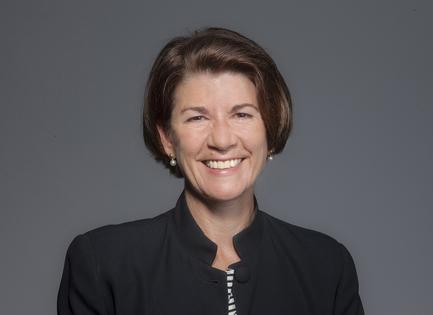Ask Amy: Nonprofit volunteer worries about future
Dear Amy: I've been a devoted supporter of a local nonprofit organization for 25 years. I am one of two continuous volunteers from when the organization was first founded.
When our executive director asks, I give advice, but I self-monitor and don't insert myself unduly.
I served on the board and at the end of my term was asked to continue as emeritus (non-voting), and attend meetings.
Recently, a staff member announced a new and unrealistic financial giving expectation for all board members.
Board members promised support, but their offerings have been weak.
As a fundraising professional myself, I spoke with the executive director when he asked and said that this staff member’s approach was not going to work.
I also met with the employee, at his invitation.
When I shared best practices, he took over the conversation. He sent a follow-up communication showing that he took nothing in.
It is damaging to set board members up to fail.
As a long-time supporter, what's my best option here?
Should I get more involved, or step back?
As a late-career professional, I don't want to get involved with this employee's unsuccessful strategies, but as a deeply committed volunteer I don't want his efforts to fail and the organization to suffer.
Any ideas?
– Dedicated
Dear Dedicated: As an emeritus board member, your status gives you an advisory role.
You have a long-term commitment to this organization. You have professional expertise in fundraising. When this issue came up during a meeting, you should have raised your hand and shared your views.
If you still feel strongly about this plan when the next board meeting rolls around, you should openly and with intention state your concerns, without specifically undermining this staff member or throwing anyone under the bus. The board can then take into account your concerns and make a decision about how to move forward.
Dear Amy: Four couples agreed to split a very reasonably priced vacation home – four bedrooms and four baths.
Each couple paid one-fourth of the total to the owner in advance.
A week before our planned vacation, one couple contracted Covid. As two of the other travelers were immunocompromised, the Covid Couple chose to cancel, even though they would probably have been well enough to travel by the time the house share was to start.
The owner of the house graciously reduced the price to that for three couples and refunded the difference (less than one-fourth of the total cost).
This left the Covid Couple subsidizing the other three couples by a total of $600.
Some people believe that those who traveled should equally reimburse the Covid Couple (who received $0 value) the $600, leaving the travelers to pay the cost of the house.
Some think the Covid Couple is out of luck since they canceled late, even though the owner reduced the total price.
The money is not enough to change any of these couples’ lives in any way – that’s not the issue. (There was no travel insurance involved.)
Thoughts?
– Curious
Dear Curious: I agree that the Covid Couple is out of luck – much as they would be if one had broken an ankle and couldn’t travel.
However – friends stay friends by picking up the pieces when tough things happen, and if it wouldn’t break the bank for each traveling couple to reimburse the Covid Couple $200, then that’s what they should do.
Dear Amy: I was extremely upset to read your response to “Disgruntled Guest” about a destination wedding. You noted that destination weddings prevent couples from having to invite “Grandma Jane and her pesky need to use a walker.”
I am seeing absolute red at your disrespect for people with disabilities.
– Seeing Red
Dear Seeing Red: A handful of readers contacted me, very upset by this phrasing.
I thought it was obvious through the context of my response that this was a sardonic comment. My intent was the absolute opposite of how some readers took it, and I apologize.
Here is the complete phrase I used, as a way to illustrate that destination weddings are exclusionary: “Marrying couples are using the expense and distance as a way to make sure that they won’t have to deal with Aunt Gladys and her pickleball obsession, Cousin Steve who is just out of rehab, or Grandma Jane and her pesky need to use a walker. Overall, this trend reflects a changing attitude toward weddings — that they are not sacred celebrations bringing two families together, but photo-ops with spectacular backdrops.”
========
(You can email Amy Dickinson at askamy@amydickinson.com or send a letter to Ask Amy, P.O. Box 194, Freeville, NY 13068. You can also follow her on Twitter @askingamy or Facebook.)
©2023 Amy Dickinson. Distributed by Tribune Content Agency, LLC.










